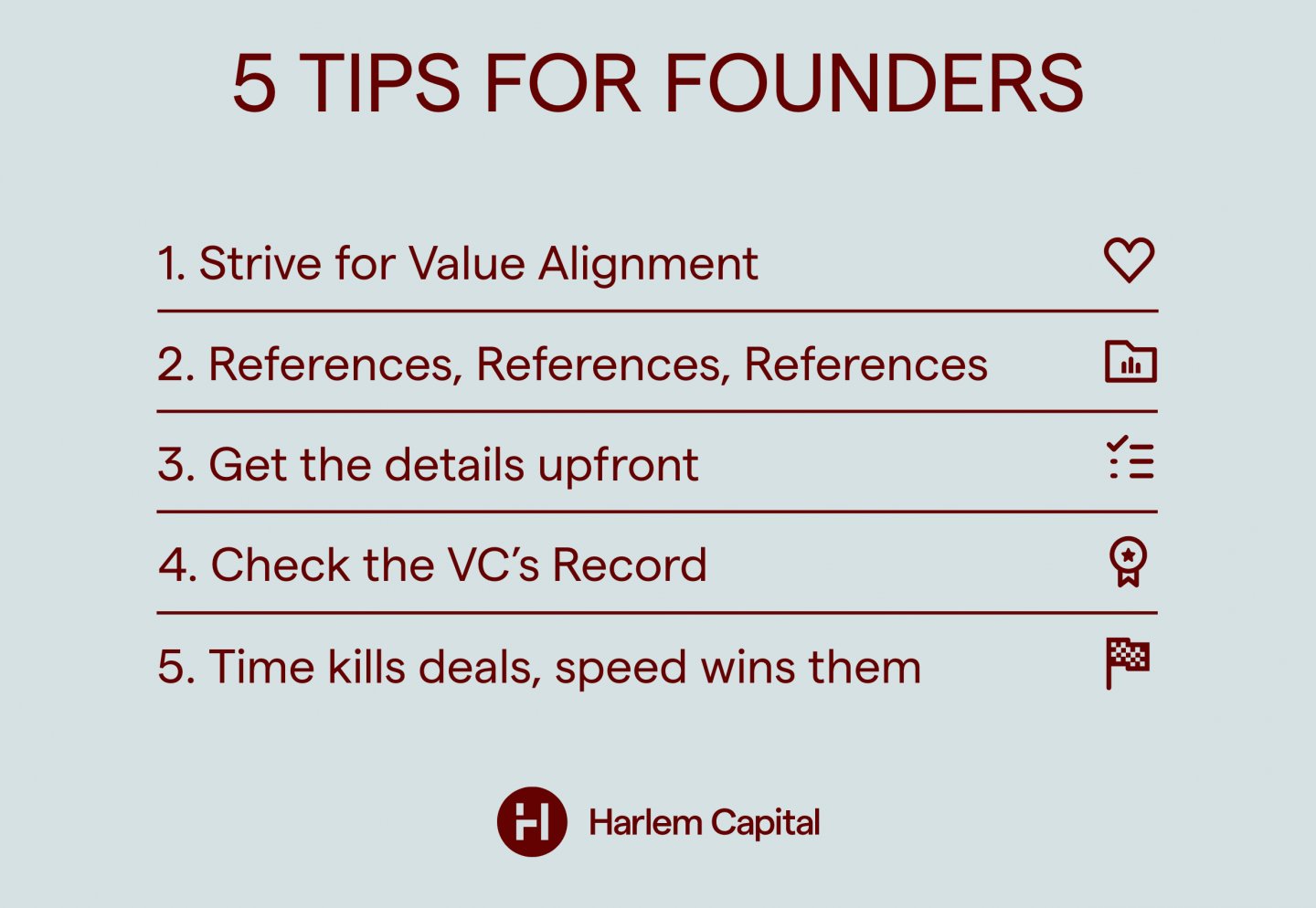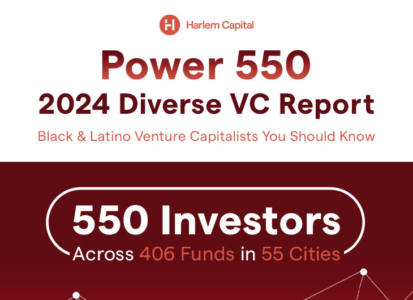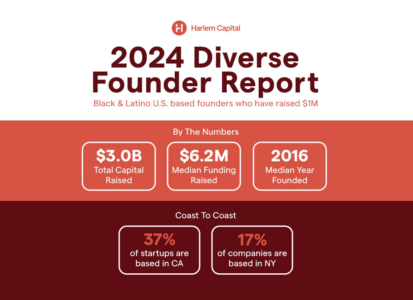5 Fundraising Tips for Founders
by Harlem Capital

“If you had only a moment, what would you say?”
We were recently asked by the Anthemis Female Innovators Lab on the latest episode of Top 5 Tips for Female Founders about advice we would share with founders that are fundraising. In summary, our advice reduces to this: do everything you can to optimize your time. Time is our most precious resource. Full stop.
DocSend found that the average Seed fundraising length in 2019 was 21 weeks. In our current fast-paced investment environment, that time has compressed for companies in hot categories. Even at Harlem Capital, we’ve seen our average time to investment decisions shift from 21 to 14 days. But for many companies it still takes a significant amount of time to complete a raise. Anything you can do to cut that time down and get back to focusing on building products, talking to customers, and working with your team is well worth the effort.
- Strive for Value Alignment
- References, References, References
- Get the Details Upfront
- Look for their Record
- Time Kills Deals, Speed Wins Them
Strive for Value Alignment
As much as you can, look for a partner whose values align with yours, your company, and how you view your company’s path to scale. Think of investors like the talent you bring to your company; you want to find people with similar goals and values that propel you and the company to be your best. One tip is to review all the content a firm produces, whether newsletters, podcasts, guides, etc. What we create reflects what we value. In reality, there’s always a balance between getting capital from where it’s available and getting it from the right people for you. Sometimes you’ll find capital, but not from your preferred investors. It won’t always be perfect so in those moments, it’s a balance of trade-offs.
References, References, References
Portfolio founders know best! One of the quickest and in-depth ways to learn about a potential investor is to ask the founders in their portfolio about their experience. They’ll have the clearest lens on the investor’s value add, how they support during the good and the bad, and why they chose that investor to join in their journey. Investors do references on founders and founders should do references on investors.
Get the Details Upfront
To optimize your time it’s important to filter which investors won’t be a fit. In the first meeting (or via email or from their website) try to assess the investor’s diligence process and investment profile. Here’s some key questions to ask:
- What’s the diligence process?
- How long does the process typically take?
- Is the investor process partner-led or firm-led? Do you decide via consensus or conviction?
- Do you lead or co-lead?
- What’s your average check size?
- What’s your ownership target?
What you’re also looking for here is how your company stacks up to their typical process. If investing in your company means that they’ll invest less than their average check size, or ownership is more than you plan to part with, then it’s likely not a fit.
Look for their Record
Another great point for insight is to review the VCs current portfolio. Crunchbase is a great tool if it’s not already on their website. Look to see the categories, the stage, and the types of companies they’ve invested in. We get numerous pitches from teams where it’s clear they haven’t done that research and it’s time they could have spent connecting with investors focused on their category. Strong investment activity in your sector could also be an indication of the VCs experience in that sector and ability to connect to experts or customers down the road.
Time kills deals, speed wins them
Speed is everything, especially in today’s market. If you’re talking with an investor that is moving you quickly through the diligence process, they are likely pretty excited and working to share the deal with their team to move quickly towards an investment decision. But if the pace of engagement starts to slow, that’s typically not a great sign. Compare how quickly you’re moving through their process with their average diligence time.That will give you a sense for how interested they are. Ask questions to see where you stack up to other companies they are evaluating at the same time. You want to be in the top 3-5 deals of the moment. FOMO is a powerful tool, use it to your advantage to create leverage and urgency.
To stay up to date on Harlem Capital & VC news, subscribe to our monthly newsletter.

